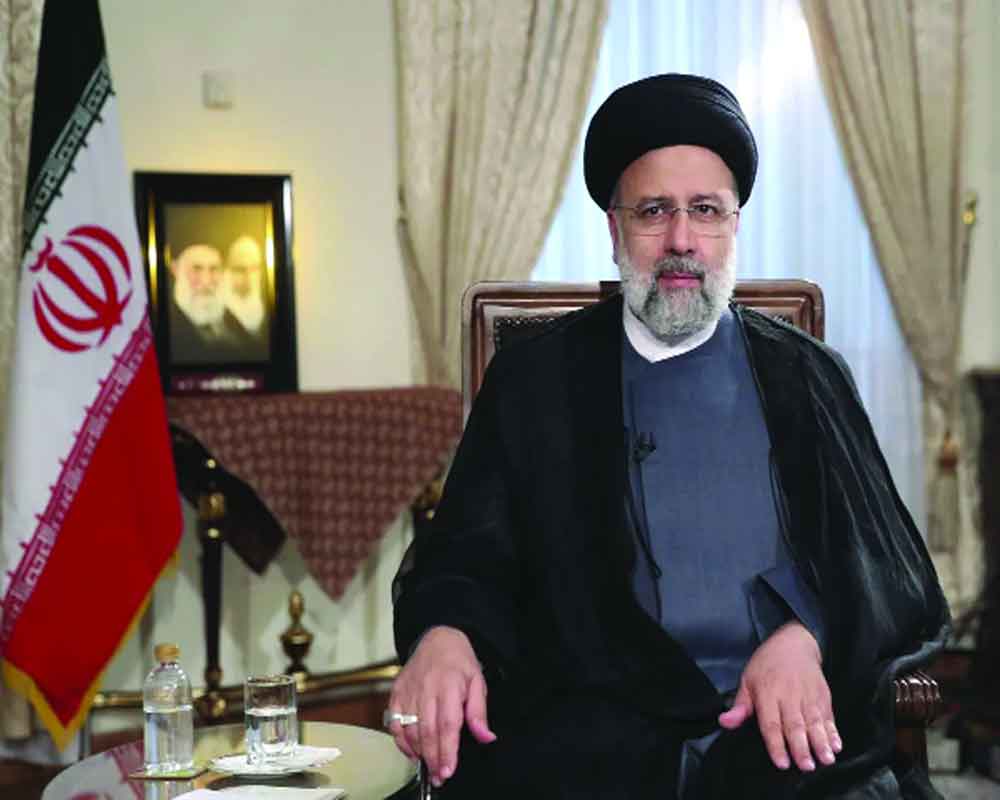Possible Iranian nuclear weapons at some point in the future are less threatening than real North Korean nukes in the present
About six weeks ago Rafael Grossi, the head of the International Atomic Energy Agency (IAEA), warned that the attempt to revive the 2015 deal that restricted Iran's ability to enrich uranium was on the brink of collapse. Three or four weeks more without an agreement, he said, would deal the talks a "fatal blow".
The problem was that since ex-president Donald Trump unilaterally trashed the deal in 2018, imposing 'maximum pressure' US sanctions against Iran in the hope of extracting further concessions, the Iranians have been gradually discarding the controls they agreed to in the original deal.
The three European countries that guaranteed the deal, Britain, France and Germany, backed the IAEA chief up, warning that "the more Iran is advancing and accumulating knowledge with irreversible consequences, the more difficult it is to come back to that deal."
In other words, once the Iranians have learned all they need to know to enrich uranium to weapons-grade, they cannot promise to forget it again. They will have that knowledge forever, which sort of defeats the whole purpose of the Joint Comprehensive Plan of Action (JCPOA), the ridiculous official name of the 2015 deal.
In fact, it's worse than that. On July 9, Tehran announced that it has installed new centrifuges that will let Iran enrich uranium up to 90 per cent purity-enough for nuclear warheads.
They are adjustable centrifuges that can easily be switched between different levels of enrichment, and Iran says they are currently set for only 20 per cent purity. But the JCPOA set the maximum permitted enrichment at 3.67 per cent, so Iran is already way beyond the limit.
To make matters worse, enrichment gets easier as the purity levels increase. To go from uranium ore to 3.67 per cent takes a lot of time and energy. To go from there to 20 per cent takes much less-and to go from 20 per cent to 90 per cent even less. The Iranians can cross the last hurdle whenever they want.
Moreover, the rest of the world will just have to take their word that they haven't gone to 90 per cent because 27 of the special cameras that the IAEA installed to verify that Iran is not exceeding the agreed enrichment level were turned off in June. The remaining 40 can be turned off whenever Tehran wants.
And what's the rest of the world going to do about this? Not much. In fact, it seems in retrospect that neither Washington nor Tehran really expected to resurrect the 2015 deal: too much time had passed, and they were just going through the motions.
When Joe Biden entered the White House in January 2021, his previous statements about the JCPOA obliged him to try to repair the damage done by Donald Trump. However, he put more effort into placating anti-Iran hawks in Congress than into talks with the regime of reformist Iranian president Hassan Rouhani (the man who originally signed the deal).
Biden would have known that Rouhani's presidency had only six months left, and that he was likely to be followed in office by the hard-liner EbrahimRaisi. (Rouhani could not run again, and the Supreme Leader's people were disqualifying rival candidates.) Yet Biden barely lifted a finger to restart serious negotiations.
Then, after Raisi replaced Hourani at the beginning of August last year, the US and Iran agreed on a five-month time-out, allegedly to give Raisi's new administration time to get up to speed on the issue. Why did Biden consent to that? Because he knew it was already a lost cause.
2021 was the year when Iran's enrichment levels rose to levels far above the JCPOA's limits. When negotiations finally restarted last December, everybody knew that the deal's original purpose had been overrun by events. Iran has become a 'nuclear threshold' power, able to build actual bombs within six months of the word 'go' at any time in the future.
That is the reality, which is why subsequent talks have been rather lackadaisical. Iran is clearly in no rush to build actual nuclear weapons, and nobody gains by abandoning the talks completely, but they aren't going anywhere and everybody knows it.
This is a disappointment, but not a disaster. Possible Iranian nuclear weapons at some point in the future are less threatening than real North Korean nukes in the present, and the Far East has learned to live with that. The Middle East is a tougher neighbourhood, and there were few signs of panic during President Bidens recent tour of the region.
He didn't even have to promise that American nuclear weapons would be available to deter a potential nuclear-armed Iran. Israel's several hundred unadmitted nuclear weapons are quite sufficient for that.
(The author's new book is The Shortest History of War.)


























